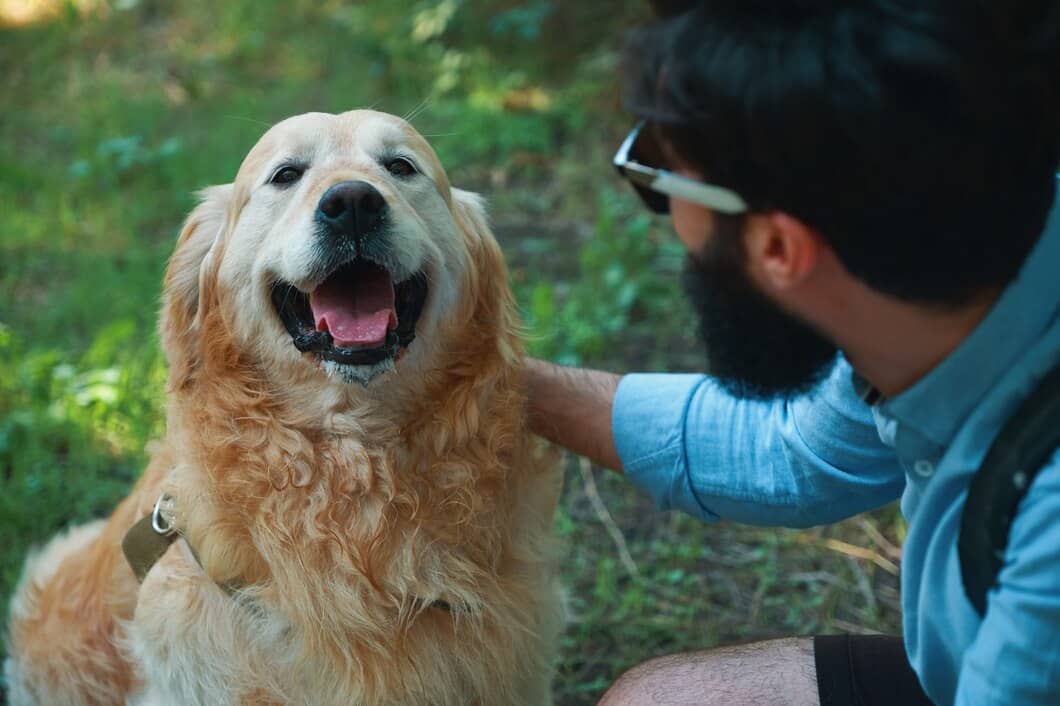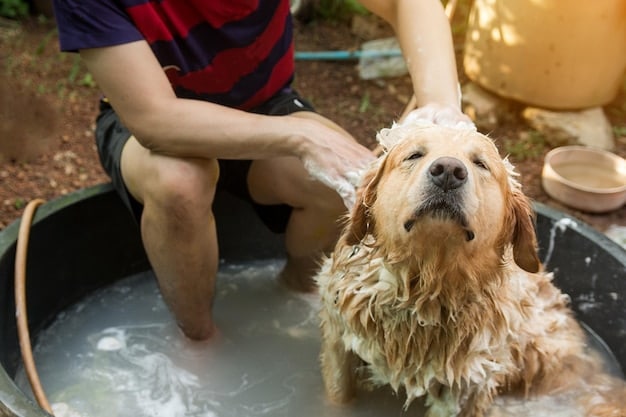
Unleashing the Secrets to Ideal Retriever Dog Kennel Care Tips
Caring for a retriever dog in a kennel environment requires not just affection, but also a strategic approach to ensure their health and happiness. This comprehensive guide will take you through the nuances of creating a nurturing space for your retriever in a kennel, offering insights based on first-hand experiences and supported by credible sources.

Outline
- Introduction to Retriever Dog Kennel Care
- Understanding the Specific Needs of Retrievers
- The Importance of a Proper Kennel Environment
- Choosing the Right Kennel
- Size and Space Considerations
- Material and Durability
- Setting Up Your Retriever’s Kennel
- Comfort and Bedding
- Temperature Control and Ventilation
- Nutrition in the Kennel
- Diet and Feeding Schedules
- Hydration and Water Accessibility
- Health and Hygiene
- Regular Health Check-ups
- Cleaning and Sanitation of the Kennel
- Exercise and Stimulation
- Physical Exercise Needs
- Mental Stimulation and Toys
- Social Interaction and Training
- Importance of Socialization
- Training Inside the Kennel
- Safety Measures in the Kennel
- Preventing Escapes and Injuries
- Emergency Preparedness
- Seasonal Care for Retrievers
- Summer and Heatwaves
- Winters and Cold Weather
- Aging Retrievers and Kennel Modifications
- Adjusting Care for Senior Dogs
- Health Issues and Comfort Adjustments
- Common Challenges in Kennel Care
- Behavioral Issues
- Health Concerns Specific to Retrievers
- Professional Advice and Resources
- Consulting with Veterinarians
- Useful Books and Online Resources
- Personal Stories of Kennel Care
- Experiences from Retriever Owners
- Learning from Mistakes
- Frequently Asked Questions
- Answering Common Queries
- Conclusion
- Summarizing Key Takeaways
Introduction to Retriever Dog Kennel Care
Retriever dogs, known for their friendly nature and intelligence, thrive in environments where they feel loved and cared for. Kennel care for retrievers isn’t just about providing shelter; it’s about creating a space that caters to their physical and emotional needs.
Understanding the Specific Needs of Retrievers
Retrievers are active and social dogs that require ample space to move and a stimulating environment to thrive. They are also prone to certain health conditions that need to be considered when setting up their kennel.
The Importance of a Proper Kennel Environment
A well-designed kennel is crucial for the wellbeing of a retriever. It should provide safety, comfort, and stimulation, and be adaptable to their changing needs as they grow and age.

Choosing the Right Kennel
Size and Space Considerations
The size of the kennel is paramount. Retrievers need enough room to stand, stretch, and move around comfortably. Overcrowded spaces can lead to stress and health issues.
Material and Durability
The material of the kennel should be durable and safe. Wood, metal, and certain plastics are popular choices, but each has its pros and cons in terms of insulation, cleaning, and maintenance.
Setting Up Your Retriever’s Kennel
Comfort and Bedding
Bedding in the kennel should be comfortable, easy to clean, and appropriate for the weather. It’s essential for protecting your retriever from hard surfaces and maintaining their joint health.
Temperature Control and Ventilation
Proper ventilation is crucial to prevent dampness and maintain a healthy environment. Temperature control, through heating in winter and cooling in summer, ensures the kennel is comfortable year-round.

Nutrition in the Kennel
Diet and Feeding Schedules
Retrievers have specific dietary needs depending on their age, size, and activity level. Consistent feeding schedules and appropriate portion control are vital for their health.
Hydration and Water Accessibility
Access to clean, fresh water at all times is non-negotiable. Water bowls should be sturdy and placed where they cannot be easily tipped over.
Health and Hygiene
Regular Health Check-ups
Regular vet visits are essential for monitoring your retriever’s health, vaccinations, and any breed-specific concerns.
Cleaning and Sanitation of the Kennel
A clean kennel prevents diseases and infections. Regular cleaning routines are necessary for maintaining a hygienic living space.

Exercise and Stimulation
Physical Exercise Needs
Retrievers require daily exercise to maintain their physical health and prevent obesity.
Mental Stimulation and Toys
Mental stimulation is as important as physical exercise. Toys, puzzles, and regular interaction help keep retrievers mentally sharp and engaged.
Social Interaction and Training
Importance of Socialization
Retrievers are social animals and benefit greatly from interactions with humans and other dogs, which can be facilitated even within the kennel setting.
Training Inside the Kennel
Training should not be neglected. Basic commands and kennel training help in managing your retriever’s behavior and ensuring their safety.
Safety Measures in the Kennel
Preventing Escapes and Injuries
The kennel should be secure to prevent escapes and designed to minimize the risk of injury.
Emergency Preparedness
Having a plan for emergencies, such as extreme weather or health issues, is crucial for the safety of your retriever.

Seasonal Care for Retrievers
Summer and Heatwaves
During summer, retrievers need protection from heat and adequate cooling measures in the kennel.
Winters and Cold Weather
In winter, appropriate bedding and heating are necessary to keep your retriever warm and comfortable.
Aging Retrievers and Kennel Modifications
Adjusting Care for Senior Dogs
As retrievers age, their kennel may need modifications to cater to their reduced mobility and increased comfort needs.
Health Issues and Comfort Adjustments
Older retrievers might face health issues like arthritis, requiring additional care and comfort measures in their kennel.
Common Challenges in Kennel Care
Behavioral Issues
Dealing with behavioral issues, like separation anxiety or destructive behavior, is a common challenge in kennel care.
Health Concerns Specific to Retrievers
Understanding and addressing retriever-specific health concerns, such as hip dysplasia or ear infections, is vital for their wellbeing.
Professional Advice and Resources
Consulting with Veterinarians
Regular consultations with veterinarians ensure that your retriever receives the best possible care and advice.
Useful Books and Online Resources
Books and online resources can provide additional information and tips for effective kennel care.
Personal Stories of Kennel Care
Experiences from Retriever Owners
Sharing personal stories and experiences from other retriever owners can provide valuable insights and lessons.
Learning from Mistakes
Understanding and learning from common mistakes in kennel care helps in improving the quality of care provided.
Frequently Asked Questions
What size should a retriever’s kennel be?
How often should I clean my retriever’s kennel?
What is the best way to keep my retriever entertained in the kennel?
How can I ensure my retriever stays healthy in a kennel environment?
What should I do to prepare my retriever’s kennel for different seasons?
How do I modify a kennel for an aging retriever?
Conclusion
In conclusion, proper care and attention to detail in setting up and maintaining a kennel can significantly contribute to a retriever’s quality of life. This guide aims to provide a comprehensive understanding of the various aspects of retriever dog kennel care, ensuring that your furry friend is happy, healthy, and well-cared for in their home away from home.
Facebook
Pinterest
Twitter
LinkedIn

